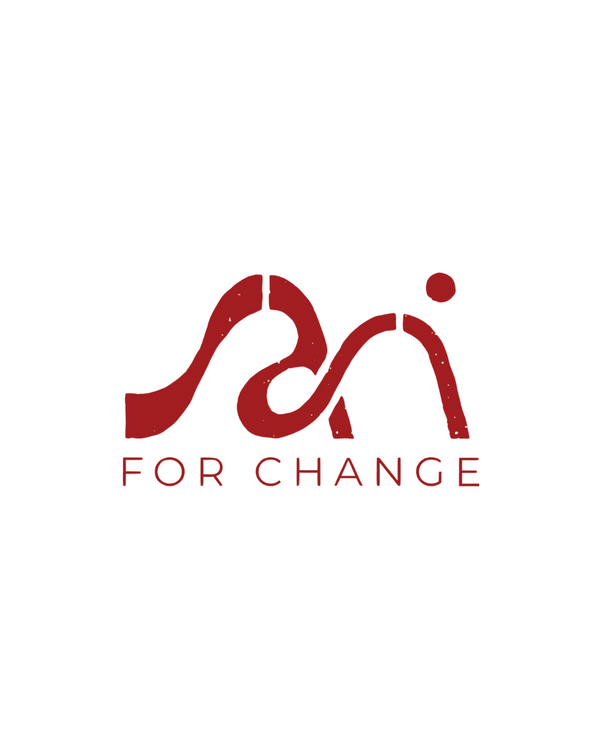
Sari for Change at COP28: A Reflection on Climate Action and the Path Forward
Share
In November, Sari for Change had the immense honour of being one of five small businesses globally to represent the International Trade Centre (ITC) at COP28 in Dubai. Our founder, Rayana Edwards, joined influential figures, policymakers, and activists from around the world to discuss how trade can serve as a powerful tool in mitigating climate change. It was an extraordinary opportunity to bring the voices of sustainable fashion and marginalized communities into the global conversation on climate action.
A Newcomer’s Perspective
As a newcomer to COP, Rayana immersed herself in the energy of the event. The buzz of conversations, dialogues, and panel discussions filled the air, as 90,000 participants gathered with a shared agenda: addressing the world’s fragility and driving climate solutions. Amid this urgency, Rayana shared her reflections:
"The call for action echoed loudly. No more time for mere talk shows - the urgency felt hopeful. In a panel with the ITC, we delved into trade, policy, and the seamless rollout of a just transition. The message was clear: change is imminent, demanding deliberate actions. Amid funds pledged by contributors to our challenges, hope rests on transparent and fair management. A just transition isn’t just a strategy; it’s our moral compass on this vital climate journey."
The Essence of a Just Transition
Throughout the discussions, equity emerged as the guiding principle for a Just Transition. Rayana emphasized that this is not just about environmental sustainabilityit’ - s about ensuring fairness for all, amplifying marginalized voices, and creating a future where no one is left behind. A Just Transition calls for more than policy shifts - it demands inclusive action that benefits both people and the planet.
1. Communication
Transparent dialogue is the heartbeat of a Just Transition. It requires open, honest conversations to build trust and ensure a shared understanding among all stakeholders. Without transparency, we risk leaving the most vulnerable behind.
2. The Power of Choices
Your choices as a consumer have the power to create a transformative ripple effect. By opting for sustainable products, you drive demand for ethical practices. Conscious consumerism is a cornerstone of change, pushing industries toward more responsible production and trade.
3. Empower Through Inclusion
A Just Transition hinges on inclusion—particularly when it comes to access to capital and supply chain inclusion. Marginalized communities and small businesses need to be empowered to participate fully in the transition to a greener economy. This inclusion ensures that sustainable practices are accessible to all, not just the privileged few.
4. Local vs. Global Impact
Choosing local is not just a trend; it’s a powerful way to reduce carbon footprints and support community resilience. Localizing production and consumption are key strategies in a Just Transition, helping to mitigate environmental impacts while fostering economic stability in vulnerable regions.
5. Social Entrepreneurship Policy
Clear, supportive policies for social entrepreneurship are critical for scaling positive impacts. Social enterprises like Sari for Change need frameworks that support innovation and growth, creating an environment where economic empowerment and sustainability can thrive together.
A Holistic Vision for Sustainability
At COP28, the conversations were not only about climate action—they were about interconnectedness. The challenges we face—environmental, social, and economic—are deeply intertwined. A Just Transition recognizes this and works towards holistic sustainability. By fostering green jobs, promoting social inclusion, and ensuring political stability, we can create lasting climate action that uplifts communities and drives economic innovation.
Sari for Change is committed to this vision. Our work upcycling saris into modern, sustainable fashion is more than a business model—it’s a testament to the power of conscious trade, women’s empowerment, and environmental responsibility. We are proud to have shared our journey at COP28 and to continue playing a role in shaping the future of fashion and trade.
Moving Forward
As we reflect on our time at COP28, one thing is clear: the path to a Just Transition is one we must walk together. It is not just about policy—it’s about people, choices, and collective action.
At Sari for Change, we believe that every garment tells a story, and every choice we make brings us closer to a fairer, more sustainable future. The urgency is real, but so is the hope. As Rayana noted, "A Just Transition is our moral compass on this vital climate journey." Together, we can navigate this path, ensuring that both people and the planet thrive.



